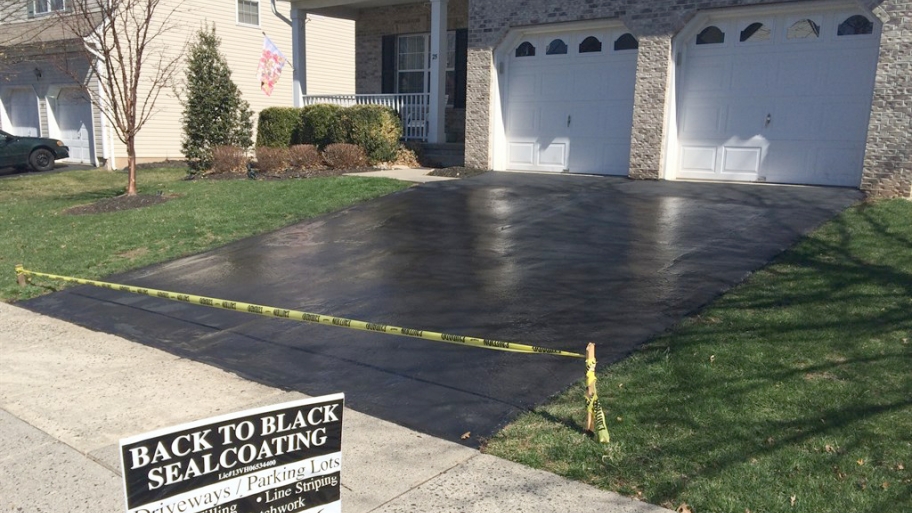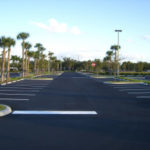How Often do You Need to Seal Your Driveway?

Sealing an asphalt driveway prolongs the life of the driveway, and also makes the driveway look more beautiful. How to keep beautiful and fully function? It certainly needs maintenance and as part of that is by sealing the driveway regularly. Now the question is how often we need to do that?
Firstly we need to understand why sealing the driveway is important to do. When exposed to heat, sunlight, water, salt, wear and tear and other extreme weather conditions, asphalt driveways tend to breakdown and get damaged. If the cracks produced in the driveway are left untreated, the lifespan of the driveway is greatly reduced. When water accumulates in these cracks, the base of the driveway gets weaker, this leads to potholes. In places with cold weather, the water in the cracks freezes causing damage to the driveway. In warm weather, cracks filled with water triggers the growth of grass on the edges. Asphalt driveways also get damaged due to oxidation from the oxygen present in the air. Sealing an asphalt driveway protects the driveway from sunlight, UV rays, water, air, cold and other contaminants.
In short, to answer the question how often to seal the driveway, the asphalt driveways require to be sealed once in every 3 to 5 years. This again depends on the weather conditions and also wear and tear. If not sealed regularly, asphalt driveways deteriorate and waiting too long to seal an asphalt driveway decreases the life of the driveway.
In general, most driveway experts will back you up on at least one point — that sealing every year is excessive. Even many sealing professionals and seal-coat manufacturers agree on that point. Sealing every year can actually lead to problems, including seal-coat peeling and cracking. However, letting your driveway go unsealed for five years might also be too much, especially if it has turned gray and is developing small cracks.
There is some debate about how often an asphalt driveway should be sealed, but every three years appears to strike a good balance. When an asphalt driveway turns gray, it indicates oxidation of the asphalt and weathering by sun, rain and freezing. The small cracks are another sign that the asphalt is having problems. If they are larger than hairline, fill them with top-quality crack filler before sealing.
It is recommended to avoid cheap products — they won’t last more than a year or so. Dealers sell professional-grade fillers that cost more but usually last a lot longer. Hairline cracks can be filled by the sealer; many sealers contain sand-like filler material that will close them. Before sealing, clean the driveway as thoroughly as possible. Finally, whether you seal the driveway or hire a pro, make sure a top-quality sealer is used.
The material that you can use for sealing the driveways is commonly asphalt. Asphalt driveway sealers are normally made either from asphalt, refined coal tar or by a blend of asphalt and refined coal tar. The sealers with refined coal tar form a barrier blocking the destructive elements in weather, air, sunlight, oils etc. The asphalt sealers are also extensively used and effective in protecting the driveways from harmful elements. One of the drawbacks in using asphalt sealers is color fading of the surface due to exposure to sun’s UV rays, dust, oxygen, salts and petrochemicals. Asphalt sealers are odorless, safe on skin and easy to use.
When is the best time to do the job? The best time to apply asphalt driveway sealer is on a cloudy day without rainfall. If the sealer is applied on a sunny day, evenly spreading the sealer becomes difficult since the sealer dries quickly. If the sealer is applied on a sunny day, it is better to moisten the driveway with water just before applying the sealer.
Seal on the Driveway
Stir the contents of the sealer and begin by applying the sealer to edges of the driveway with brushes. Then pour the sealer on the driveway. Spread the sealer slowly and uniformly using squeegee. Rollers or brushes cannot be used to apply asphalt sealers.
It may acquire around 24 hours for the sealer to dry completely. The movement of vehicles must be blocked until the driveway is entirely dry. Asphalt driveways are known for their sturdiness and if properly maintained, they can absolutely live up to the expectations.
Contact us
 Phone Call |
 Text Message |
 |







